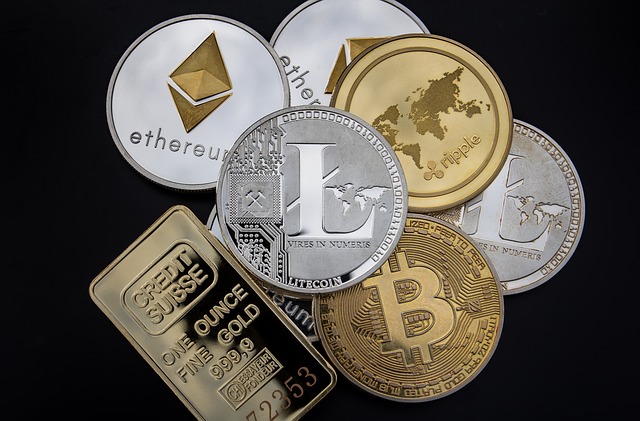In 1636 there was the so-called tulip crisis in Amsterdam. A traveller had brought this flower back from Turkey and it caused a great stir. Suddenly everyone wanted tulips, and demand was immediately huge. On the stock exchange, tulips and tulip bulbs became an object of speculation. Prices rose to gigantic heights and then suddenly plummeted. How did this happen? And what does this have to do with Bitcoin and other cryptocurrencies? Possibly more than many investors would like.
Speculation – all values are only relative
Why could the price of tulips in Holland rise and then fall? Because in the beginning nobody had tulips in the country. And those who quickly secured enough bulbs could grow many tulips from them and sell them at a great profit on the market. Since the flower was new, it would sell like hot cakes. Everyone wanted to be in on it, as early as possible. Therefore, the investors outbid each other. But now you have to remember that tulips are plants. And plants reproduce en masse in a good climate. That means: a product is in short supply – the price rises. But a product that can be multiplied as often as desired and relatively quickly cannot rise in price forever. Instead, the price will fall because there is an oversupply.
This is the current situation with Bitcoin. It all started with the revolutionary blockchain technology. It made the new money revolutionary from a purely technical point of view. In addition, it had a characteristic that a VISA card, for example, does not have: Anonymity when paying. Thus, the first customers were mainly technology freaks and criminals. Later, they were joined by investors. There were more and more of them. The prices rose immeasurably. An industry formed around this currency. People bought servers to mine Bitcoin. But the problem is: the amount of new coins is limited. Moreover, with each new Bitcoin, the effort to mine the next ones increases. This in turn creates a number of problems:
The Bitcoin itself is not backed by a value. When the FED issues a US dollar, it guarantees that the owner can exchange it for services. Bitcoin, on the other hand, is really just hot air. Its value is based on the assumption that someone in the world is stupid enough to spend even more on it. Above all, it is replaceable. Numerous competing currencies have entered the market. One can today buy crypto currencies of different types.
At the moment, the blockchain is well encrypted. But what if it can be hacked at some point? What if new technologies develop in such a way that the someday “outdated” Bitcoin encryption is no longer secure? Then pure chaos would break out. Many people would end up in prison.
Due to the limitation of the money supply, Bitcoin is not suitable as a long-term means of payment. In economics, we know that if the economy grows, a restriction of the money supply would result in dangerous deflation.
This, and the fact that people are speculating with Bitcoin, is already causing massive price fluctuations. Some of them very serious. How is such a currency supposed to function as a means of payment? A trader sells a car for Bitcoin and an hour later it loses half its value. The trader would be broke. So who would run their business with that risk in the background? And what is a means of payment supposed to be good for if it is not suitable as a means of payment? Then it is completely devoid of any sense.
It is also possible that the currency will simply be banned at some point. On the one hand, because the states have no interest in people paying more and more anonymously. On the other hand, because mining consumes an enormous amount of energy, so that CO2 is released in huge quantities. Why should one allow such a thing for the mining of a means of payment that is of no use whatsoever to the world? Nothing would be better for the planet if Bitcoin were completely banned immediately.

What does the future look like?
Bitcoin was new and has enriched the world with an idea or a new technology. But it will never be able to establish itself as real money. There is certainly a need for digital currencies. However, they will be currencies that offer security and reduce payment transactions with their transaction costs. At the same time, they will be backed by tangible goods in terms of value and also tied to a currency or a basket of important currencies. Why? Precisely so that exchange rates do not permanently fall by 50% only to rise again by 75% the next day. They will be currencies whose technology is more sophisticated, such as Amaterasu Coin. It will cost less energy to mine, and the data will be even more secure because it will be better encrypted.
Furthermore, one can assume that the blockchain will find numerous new forms of application. The idea is great and is already finding numerous new areas of application. Some are even moving in the direction of using it to mark commodities. In this way, it might be possible to show where the waste goes and how it comes back into the cycle.
In other words, Bitcoin is great. It has given the world some ideas. In my view, it will eventually cease to exist. But it has definitely changed the world.
